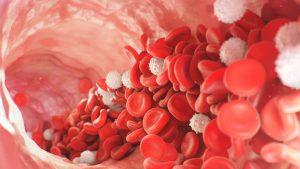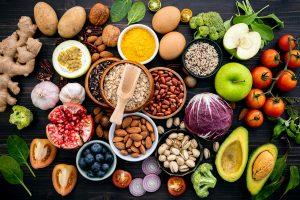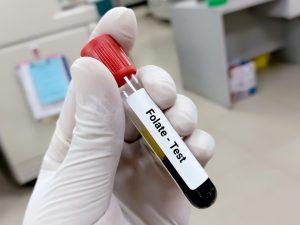
We often hear about malnutrition, but what does it mean? What are the diseases that result from not following a proper diet? How can we maintain our health and not be exposed to malnutrition? And what is the proper diet that guarantees a healthy life? All of that and more we will know through this article of ours.
What is the Malnutrition
Malnutrition is one of the most common diseases in our society, and malnutrition is the lack of access to nutrients, vitamins, and proteins necessary for the body, which leads to problems related to the health of the body, or due to excessive access to nutrients, which also leads to damage to the human body, like excessive obesity.
There are three aspects of malnutrition that can be explained as follows:
Malnutrition caused by not getting enough nutrients (improper feeding)
In which the body does not get an adequate amount of essential nutrients such as proteins and calories, in addition to the main vitamins and minerals, so the body becomes more weak and vulnerable to diseases and infections, so the body may be infected with diarrhea and measles, and the matter may develop and lead to death.
Malnutrition caused by nutritional deficiency
This is due to not eating food that contains enough calories for the body to perform its vital activities, and thus the body becomes unable to perform the physiological processes within it. The number of people who suffer from malnutrition as a result of lack of food is about 1.02 billion around the world, especially in developing countries.
Malnutrition due to unbalanced food
This is due to eating more types of food than others, especially carbohydrates and excessive fats, which are accompanied by many diseases such as obesity and heart disease.
Symptoms and damages of malnutrition
Lose weight
Lack of intake of essential vitamins, proteins, and minerals that the body needs, results in a significant weight loss that may reach thinness, as weight is significantly reduced in a very short time.
Immunodeficiency and decreased muscle capacity
The body becomes weaker and less able to fight off disease. Muscles also weaken significantly through the inability to move and perform basic daily tasks. Blood clots also occur due to lack of movement. Malnutrition may also lead to heart failure, and the inability to continue standing.
Disturbance in the work of the kidneys
The kidneys become unable to balance the proportion of fluids and salts, and thus dehydration or an increase in the proportion of fluids may occur within the body.
Psychological and neurological problems
People who suffer from malnutrition may develop some psychological diseases: such as depression, isolation, or self-denial.

Damage to the fetus and pregnant women
Malnutrition of a pregnant woman leads to many harms to the fetus, such as: diabetes, or heart problems, and thus malnutrition leads to a decrease in fertility.
Malnutrition also leads to:
Inability to concentrate.
Severe fatigue, general fatigue and emaciation.
Feeling very cold.
Pain in joints, bones and muscles.
Inability to tolerate light.
swelling of the tongue
The negative impact of malnutrition on children
It leads to slower growth than the normal rate.
The rapid fatigue of the child and the intolerance of fatigue.
Unpleasant changes in the child’s behavior.
What are the diseases caused by malnutrition?
Wasting and general fatigue of the body
It is called marasmus, and it is a disease caused by a severe lack of calories, vitamins, and proteins that are important to the human body. This causes softening of the bones and general weakness in the body as a result of severe weight loss, which makes the person look emaciated.
Anemia
It is known as anemia as a result of a deficiency of iron or vitamin B12 and thus a deficiency of hemoglobin in the blood (the protein responsible for the production of red blood cells). Doctors recommend eating some fruits and vegetables with green leaves to compensate for this deficiency. dates) and others.
Diseases associated with a deficiency of important vitamins for the body
Zinc deficiency leads to skin rashes, and the body’s resistance to infections is weakened.
Vitamin B12 deficiency leads to anemia and nervous system problems.
Deficiency of vitamin C (ascorbic acid) leads to scurvy, as well as a decrease in collagen production, which affects bones and teeth.
Vitamin D deficiency and Ca, K deficiency result in rickets, bone deformities, and curvature of the bones and legs.
kwashiorkor disease
And this disease occurs due to the severe lack of proteins that the body needs and often occurs in countries that suffer from famines, and one of its most important symptoms is swelling in the face, hands, and feet, in addition to peeling of the skin, and redness, or yellowness, in the color of the hair.
Vitamin A deficiency leads to night blindness.
Complications of malnutrition can also occur, such as:
Inability to control temperature.
Inability to heal wounds and complications of healing problems, especially after surgeries.
Ease of picking up infections and diseases from the surroundings.
How do you treat malnutrition?
Following a diet, of course, avoids malnutrition, so it is necessary to:
You eat food rich in proteins that your body needs.
Eat simple meals between meals.
Drink drinks fortified with the calories your body needs.
Stay home as long as possible.
Your doctor may recommend oral nutritional supplements
In severe cases, the attending physician may advise the installation of a feeding tube at the nose that connects directly to the stomach.
Intravenous feeding through special solutions.

How do I follow a proper diet?
In order to have a healthy diet, you must take care of:
Eat plenty of fresh vegetables and fruits.
Eat foods rich in carbohydrates, such as: rice, pasta, potatoes, and bread.
Drinking milk and eating its derivatives.
Eat protein rich food from meat, eggs, legumes, fish.
Regulating eating and not overeating.
Eat foods that contain carbohydrates, which provide the body with the energy needed to carry out the necessary tasks.
Eat foods that contain beneficial and healthy fats, such as: nuts, peanuts, and various seeds.





No comment yet, add your voice below!